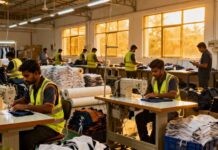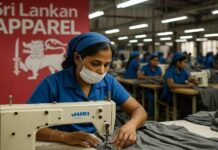In a significant advancement for sustainability in the textile industry, Circ and Selenis have announced a partnership aimed at producing high-quality recycled polyester. This collaboration focuses on transforming post-consumer plastic waste into a valuable resource for the fashion sector, thereby promoting circularity and reducing environmental impact.
Circ, known for its innovative recycling processes, has developed a proprietary technology that efficiently converts waste materials into new fibers. By teaming up with Selenis, a leader in the field of sustainable polyester production, the two companies aim to enhance the quality and performance of recycled fibers, making them more appealing for mainstream use in the fashion industry.
“This partnership with Selenis marks a significant step forward in our mission to create a truly circular economy for textiles,” stated Circ CEO Peter Majeranowski. This collaboration is expected to address the growing demand for sustainable materials in the fashion sector while providing brands with the means to meet their sustainability targets.
The new recycled polyester will not only help in reducing the volume of plastic waste but also contribute to diminishing the carbon footprint associated with traditional polyester production. The companies are optimistic that their combined efforts will set a new standard for the industry.
Selenis CEO Duarte Matos Gil added, “By working together, we are able to leverage each other’s strengths and expertise to deliver premium recycling solutions.” This initiative showcases the commitment of both Circ and Selenis to innovate and lead in the sustainable textile space.
The partnership reflects a broader trend within the fashion industry, where brands are increasingly seeking sustainable alternatives to traditional materials. As consumers become more environmentally conscious, the demand for recycled and sustainably sourced textiles is on the rise.
In conclusion, the collaboration between Circ and Selenis represents a pivotal moment for the fashion industry, emphasizing the importance of innovation and sustainability. By transforming waste into high-quality materials, this partnership aims to contribute to a more sustainable future for textiles.

































